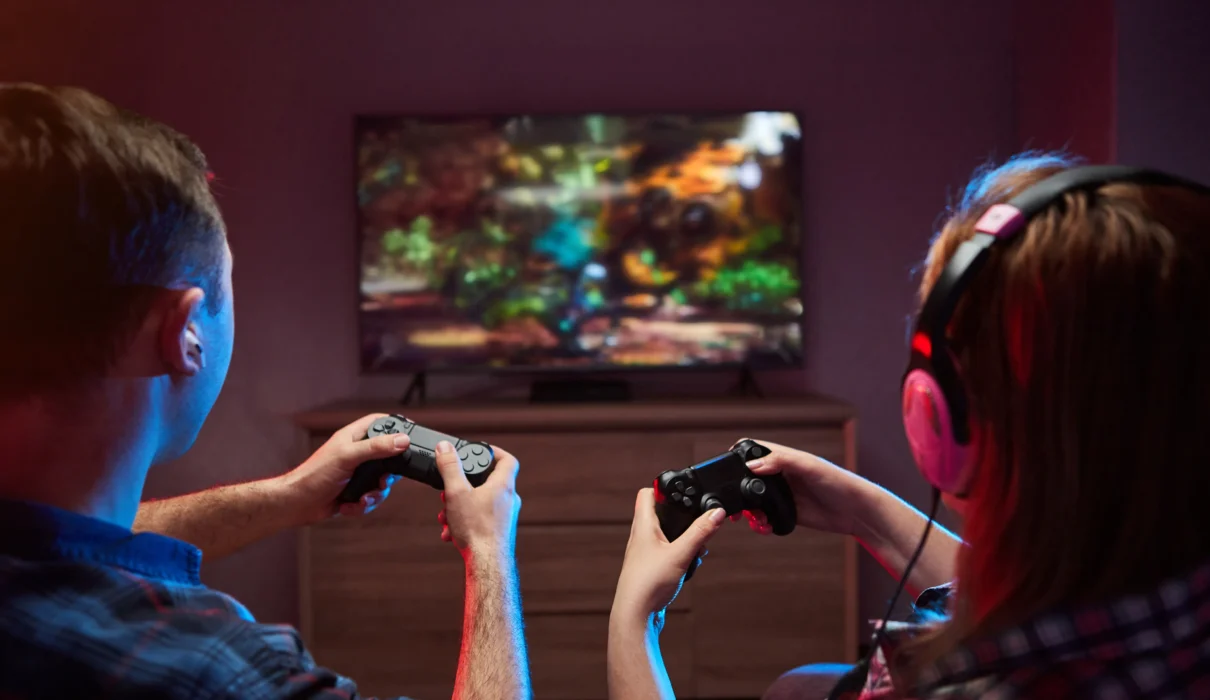In recent years, video games have evolved from a simple pastime to a global phenomenon that touches nearly every age group. Whether it’s teenagers immersed in multiplayer battles, adults unwinding with puzzle games, or seniors playing digital card games—gaming is everywhere.
But with this massive growth comes an important question: What impact does gaming have on our mental health?
Let’s explore the good, the bad, and the balanced side of gaming in today’s digital world.

The Good: How Gaming Can Boost Mental Health
Believe it or not, gaming can be good for your brain—when done in moderation.
1. Stress Relief and Relaxation
Many people turn to games to decompress after a long day. Games like Animal Crossing or Star dew Valley create calming environments that reduce anxiety and help players mentally reset.
2. Improved Cognitive Function
Strategy games, puzzles, and role-playing games can enhance memory, critical thinking, and problem-solving. Some studies even show that regular gaming can increase mental flexibility and attention span.
3. Social Connection
Multiplayer games like Fortnight, Among Us, and Valor ant foster friendships across countries and cultures. For many, especially during isolating times like the pandemic, online games became a social lifeline.
4. Safe Emotional Expression
Story-rich games like Life is Strange or Celeste tackle complex emotional themes, giving players a space to reflect on feelings they may not easily express in real life.
❌ The Bad: Where Gaming Can Harm Mental Health
As with anything, too much of a good thing can tip the scale. When gaming becomes excessive, certain risks appear.
1. Addiction and Escapism
Gaming can become a coping mechanism for stress, loneliness, or depression. In extreme cases, this turns into gaming addiction, leading to lost time, poor sleep, and neglected responsibilities.
2. Increased Anxiety or Aggression
Fast-paced games can sometimes spike stress levels, especially in competitive environments. Toxicity in online lobbies or pressure to win can fuel anxiety and anger.
3. Social Withdrawal
Ironically, while games can connect people, excessive solo gaming can lead to isolation from real-world relationships. Gamers may begin prioritizing virtual interactions over in-person ones.
4. Sleep Disruption
Playing late into the night, especially under stimulating blue light, can disrupt circadian rhythms, leading to insomnia or poor sleep quality—which directly affects mental health.
⚖️ The Balanced: Creating a Healthy Relationship with Games
Gaming doesn’t need to be demonized—or glorified. It’s all about mindful usage.
Tips for Balanced Gaming:
-
⏱️ Set time limits to avoid excessive play.
-
💤 Avoid screens an hour before bed to improve sleep.
-
🤝 Choose games that foster positive and social interaction.
-
🧠 Be aware of why you’re playing: is it for fun or to avoid something else?
-
🚶 Take regular breaks to stretch, walk, or socialize offline.
If gaming begins to feel like an obligation rather than a joy—or starts interfering with daily life—it’s okay to step back and reassess.
Final Thoughts
Video games are not the enemy of mental health. When used with intention, they can be a source of joy, learning, and connection. But like all things, they require balance.
The key is recognizing when games are helping—and when they’re holding you back.
Because in the end, mental health is the real high score worth chasing.

